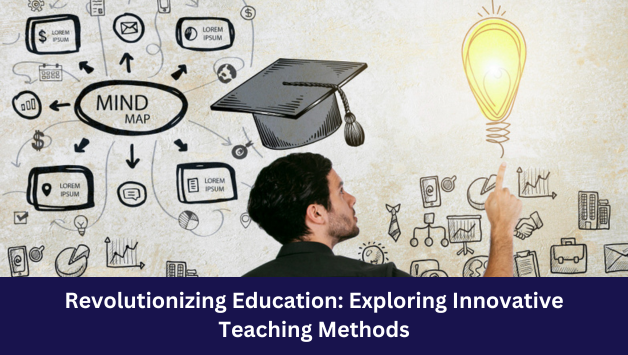Introduction:
Innovation in education has become essential to meet the diverse needs of learners and prepare them for success in the 21st century. The Delhi Institute of Higher Education (DIHE) in Greater Noida is the top pgdm colleges in Greater Noida, renowned for its excellence in management education, is at the forefront of revolutionizing teaching methods. By embracing innovative pedagogical approaches, it is transforming the learning experience and equipping students with the skills and knowledge needed to thrive in today's dynamic world.
Active Learning:
One of the most effective teaching methods employed by DIHE is active learning. Rather than passively receiving information through lectures, students engage in interactive activities, discussions, and problem-solving exercises. This hands-on approach fosters critical thinking, collaboration, and deeper understanding of course materials. Through case studies, group projects, and simulations, students are encouraged to apply theoretical concepts to real-world situations, preparing them for the challenges of the business world.
Flipped Classroom:
The flipped classroom model is another innovative teaching method embraced by DIHE. In this approach, students review course materials independently before class and use class time for discussions, debates, and application activities. By flipping the traditional lecture format, educators can maximize valuable face-to-face interaction and focus on higher-order thinking skills. This model promotes active engagement, student-centered learning, and personalized feedback, enhancing the overall learning experience.
Experiential Learning:
The Colleges places a strong emphasis on experiential learning, which involves learning through hands-on experiences and real-world applications. Through internships, industry projects, and corporate interactions, students gain practical exposure to the business environment and develop essential skills such as problem-solving, decision-making, and communication. By bridging the gap between theory and practice, experiential learning enables students to apply their knowledge in meaningful ways and prepares them for successful careers in management.
Technology Integration:
Incorporating technology into the classroom is another key aspect of innovative teaching methods. By leveraging digital tools and resources, educators can enhance the learning experience and cater to diverse learning styles. From interactive multimedia presentations to online learning platforms, technology offers endless possibilities for engaging students and facilitating active participation. Additionally, DIHE provides access to state-of-the-art facilities and software to support hands-on learning in areas such as data analytics, financial modeling, and market research.
Collaborative Learning:
Collaborative learning is a fundamental component of teaching philosophy. By working together on group projects, presentations, and problem-solving tasks, students develop teamwork, communication, and leadership skills. Collaborative learning also encourages peer-to-peer support, knowledge sharing, and creative thinking. Through structured group activities and team-based assignments, The College fosters a collaborative learning environment where students can learn from each other's perspectives and experiences.
Multidisciplinary Approach:
It adopts a multidisciplinary approach to education, recognizing the interconnectedness of various disciplines in today's complex business landscape. By integrating concepts from fields such as economics, psychology, and sociology, educators provide students with a holistic understanding of management principles and practices. This interdisciplinary perspective enables students to see the bigger picture and make well-informed decisions that take into account the broader social, economic, and environmental implications.
Assessment for Learning:
The College emphasizes assessment for learning rather than assessment of learning. In addition to traditional exams and quizzes, educators use a variety of assessment methods such as presentations, portfolios, and reflective journals to gauge student understanding and progress. By providing timely feedback and opportunities for self-assessment, and encourages continuous improvement and fosters a growth mindset among students. This approach promotes intrinsic motivation, self-directed learning, and lifelong learning habits.
Conclusion:
Innovation in teaching methods is essential for meeting the evolving needs of learners and preparing them for success in the 21st century. Best colleges for pgdm in Delhi NCR is the DIHE is leading the way in revolutionizing education through active learning, flipped classrooms, experiential learning, technology integration, collaborative learning, multidisciplinary approach, and assessment for learning. By embracing these innovative pedagogical approaches, and is empowering students to become lifelong learners, critical thinkers, and effective leaders in the dynamic world of management.



